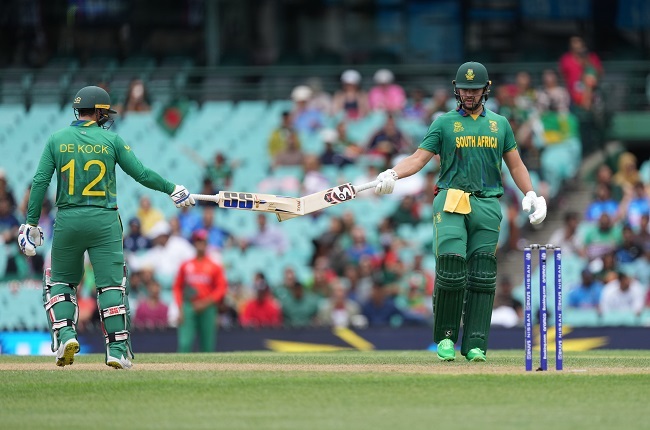
- Local cricket will likely see an increasing number of domestic players opting for hybrid employment or even sacrificing international cricket for the riches of T20 leagues.
- In its latest Global Employment Report, FICA notes that 82% of surveyed players now combine a national contract with at least one T20 league gig, with 40% being full-on free agents.
- South Africa is hardly unaffected, with 12 of the Proteas 16 contracted players currently engaged in hybrid employment arrangements.
South African cricket and its supporters - particularly the purists - should brace themselves for more Quinton de Kocks and Rilee Rossouws on the domestic circuit than Dean Elgars.
That is one of the key takeaways from the Federation of International Cricketers' Association's (FICA) latest 2022 Men's Global Employment Report, the survey that provides a fascinating and even disconcerting snapshot of the state of the game from a players' perspective.
No less than 40% of the world's leading T20 players are now fully-fledged "mercenaries", free agents who aren't tied to any form of national or domestic contract.
Furthermore, 42% of players currently adopt a hybrid model to their employment, combining a national or domestic contract with at least a gig in one of the leading overseas T20 leagues.
This is particularly relevant to South Africa, where only four of the Proteas' 16 contracted players (Elgar, Temba Bavuma, Keegan Petersen and Andile Phehlukwayo) don't have a T20 assignment on their radar to supplement their income.
On a broader level, it means a massive 82% of players around the world aren't satisfied with settling just for a national contract.
"Whilst historically the professional player employment pathway was a vertical one, working upwards in their own country towards international honours/ central contracts, increasingly, the horizontal employment pathway has expanded, with the opportunity to ply their trade playing in multiple domestic leagues as an overseas player, either in addition to, or instead of their home contract," FICA noted.
"This report period has seen the continuation of the trend of premature 'flight of talent' towards domestic leagues, which is driven by push and pull factors."
Already, De Kock has stopped playing Test cricket and only plays for South Africa in the limited overs formats, while the Proteas dabbled for the first time in selecting free agents by including Rilee Rossouw in their T20 squad in mid-year for the ultimately failed tilt at the ICC T20 World Cup.
The example of 19-year-old Dewald Brevis, who admittedly has started playing a bit of domestic cricket for the Titans, also illustrates that local players might in future not even use domestic structures to stake a claim for international selection.
However, the biggest factor in some leading players cutting down on their international commitments and favouring T20 leagues is the crowded playing schedule.
"We have recently seen the release of the men’s and women’s Future Tours Programme (FTP) for the next four years, which include an increase in the overall volume of ICC Events and bilateral international cricket. There are a number of notable positives in both FTP’s," said the organisation.
"However, FICA remains concerned about the sustainability of filling up the calendar with cricket, without clearly delineated or agreed global windows that acknowledge how each of the game’s three major global landscapes interplay with each other (ICC Events/bilateral international cricket/domestic leagues), and no real framework around how countries can schedule."
Ironically, Cricket South Africa (CSA) has cut down significantly on its traditional summer window for international cricket locally because of the newly established SA20 tournament, a last-ditch attempt to bolster its ailing finances, which requires a consistent timeslot in future.
That said, the new league is likely to significantly influence local cricket's remuneration levels, which is currently significantly below the world average.
"The competition, which features six teams all owned by existing IPL franchises, has raised R2.5 billion and could prove to be a financial game-changer for cricket in South Africa," FICA noted.

